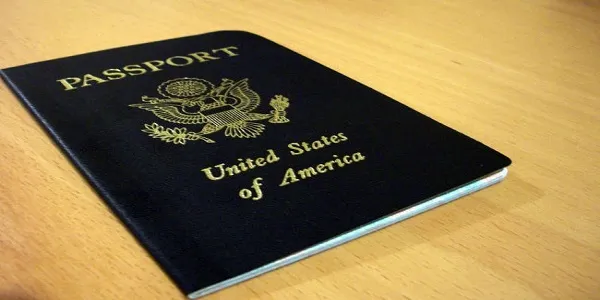Are you a Canadian traveler eager to embark on an unforgettable journey to the mesmerizing realms of Turkey? Well, before you start packing your bags and plotting your itinerary, there’s one crucial step that must not be overlooked: obtaining the right visa. With a plethora of options available, navigating through the labyrinthine world of Turkish visas can be intimidating. But fret not! In this blog post, we will unravel the mysteries and complexities surrounding different types of Turkish visas specifically tailored for Canadian travelers. So sit back, relax, and let us guide you towards your dream adventure in Turkey! TURKEY VISA FOR CANADIANS
Introduction to Turkish Visas
Turkey is a popular travel destination for Canadians, offering a unique blend of Eastern and Western cultures, stunning landscapes, and rich history. In order to enter Turkey as a Canadian citizen, you will need to obtain a visa. Understanding the different types of visas available can help make your travel planning easier and ensure that you have the appropriate documents for entry into the country.
Types of Turkish Visas:
1. Tourist Visa:
The most common type of visa for Canadian travelers to Turkey is the tourist visa. This allows visitors to stay in Turkey for up to 90 days within a 180-day period for tourism purposes only. The application process for this visa can be done online through the Turkish government’s e-visa website or at one of several kiosks located at major airports in Turkey upon arrival.
2. Business Visa:
If you are traveling to Turkey for business purposes such as attending conferences, meetings or conducting business negotiations, you will require a business visa. This visa also allows for stays up to 90 days within a 180-day period but requires additional documentation such as an invitation letter from the company in Turkey and proof of financial means.
3. Student Visa:
For those looking to study in Turkey, a student visa is required. It allows students to stay in the country for up to one year while pursuing their studies. Applicants must provide proof of enrollment at an accredited institution and sufficient funds during their stay. TURKEY EMERGENGY VISA
4.Biometric Passport Entry Visa:
Canadian citizens
Requirements & Application Process
Obtaining a visa is an essential step for Canadian travelers who wish to visit Turkey. The type of visa you need will depend on the purpose and duration of your stay in the country. It is crucial to understand the different types of visas available and their application process to make sure your trip goes smoothly.
1. Tourist Visa:
If you are planning a short-term visit to Turkey for tourism, leisure, or visiting friends and family, then a tourist visa is what you need. This type of visa allows Canadian citizens to stay in Turkey for up to 90 days within a 180-day period. To obtain a tourist visa, you can apply online through the Turkish government’s Electronic Visa Application System (e-Visa). The application process is quick and straightforward; all you need is a valid passport, a credit card or debit card for payment, and an email address for receiving your e-Visa.
2. Business Visa:
Canadian citizens traveling to Turkey for business purposes such as attending conferences, meetings, or negotiations require a business visa. This type of visa also allows stays up to 90 days within a 180-day period. The application process for a business visa is similar to that of a tourist visa; however, additional documents such as an invitation letter from the company in Turkey may be required.
3. Student Visa:
Students planning to study in Turkey must obtain a student visa before arrival. To apply for this type of visa, students need an acceptance
Overview of the Turkey e-Visa for Canadian Travelers
The Turkey e-Visa is an electronic travel authorization that allows Canadian travelers to visit Turkey for tourism, business, or medical purposes. It was introduced in 2013 as part of the Turkish government’s efforts to simplify and streamline the visa application process.
As a Canadian traveler, you have two options for obtaining a Turkey e-Visa: applying online through the official website of the Turkish Ministry of Foreign Affairs or using a third-party visa service provider. Both methods are convenient and efficient, but there are some differences in terms of processing time and fees.
Application Process
To apply for a Turkey e-Visa online, you need to have a valid passport with at least 6 months’ validity remaining from your date of entry into Turkey. You will also need to provide basic personal information such as your name, nationality, date of birth, and passport details. In addition, you will be required to upload a digital copy of your passport photo page and pay the application fee using a credit or debit card.
The processing time for an e-Visa is usually up to 24 hours but can take longer during peak periods. Once your application is approved, you will receive an email with your e-Visa attached as a PDF document. It is recommended that you print out this document and carry it with you during your trip as proof of valid entry into Turkey.
Fees
The cost
Validity & Restrictions
Validity & Restrictions:
When it comes to obtaining a Turkish visa, it is important to understand the validity and restrictions that apply. This will ensure that your travel plans go smoothly and you do not face any unexpected issues during your trip.
Validity:
The validity of a Turkish visa refers to the duration for which the visa is valid. The length of validity depends on the type of visa you are applying for and your purpose of travel. Generally, tourist visas are valid for 90 days within a period of 180 days from the date of issue. However, business visas can have longer validity periods depending on the duration of your business trip.
It is crucial to note that once a visa has expired, it cannot be extended or renewed while in Turkey. You will need to exit the country and reapply for a new visa if you wish to stay longer.
Restrictions:
Turkish visas also come with certain restrictions that travelers must be aware of before entering the country. These restrictions may vary based on the type of visa and your individual circumstances.
One major restriction to keep in mind is that under no circumstances can you engage in paid work or employment while on a tourist visa. This includes remote work or freelancing jobs as well. Violating this restriction could result in deportation and future difficulties when trying to enter Turkey again.
Additionally, some types of visas may restrict entry into certain regions or provinces within Turkey. It is essential to carefully read through all restrictions listed on your specific type of visa before making any travel plans
Benefits of e-Visa vs. Traditional Visa
In recent years, the Turkish government has introduced an electronic visa (e-Visa) system that offers a more convenient and streamlined process for obtaining a travel visa. This new system has several advantages over the traditional visa application method, making it an attractive option for Canadian travelers. In this section, we will delve into the benefits of e-Visa compared to the traditional visa.
1. Convenience: One of the main reasons why travelers prefer e-Visas is because they can apply for them from anywhere in the world as long as they have an internet connection. This eliminates the need to physically visit a consulate or embassy, saving time and effort for those who may not live near one. With just a few clicks, applicants can complete the entire process online without having to deal with paperwork or long queues.
2. Faster Processing Time: The processing time for traditional visas can be lengthy and unpredictable, with some applications taking weeks or even months to get approved. On the other hand, e-Visas are usually processed within 24 hours, allowing travelers to make last-minute plans without worrying about delays in their visa approval.
3. Cost-effective: Applying for a traditional visa often involves additional costs such as transportation fees and mailing expenses to submit documents and collect your passport once it’s been processed. With e-Visas, all steps can be completed online, eliminating these extra expenses.
4. User-friendly Application Process: The application process for e-Visas is simple and straightforward compared to traditional visas
Understanding the Turkey Emergency Visa
The Turkey Emergency Visa is a type of visa that allows Canadian travelers to enter Turkey in case of emergency situations. This visa can be obtained quickly and easily, making it a convenient option for those who need to travel to Turkey urgently.
To apply for the Turkey Emergency Visa, Canadian citizens must have a valid passport with at least 6 months remaining before expiration. They also need to provide evidence of the emergency situation, such as medical reports or official letters from employers or government agencies. The reason for travel must also fall under one of the following categories:
1. Medical Emergencies: This includes unexpected health issues or injuries that require immediate treatment in Turkey.
2. Humanitarian Reasons: If there is a natural disaster, political unrest, or other humanitarian crisis in Turkey that requires assistance from foreign aid workers, this visa may be granted.
3. Business Purposes: In case of urgent business matters such as attending an important meeting or signing a contract, Canadian travelers can apply for this visa.
4. Family Emergencies: If there is an unforeseen event involving family members residing in Turkey that requires immediate attention from the Canadian traveler (e.g., death or serious illness), this visa can be applied for.
5. Legal Issues: In case of legal emergencies such as deportation hearings or court appearances, this visa may be granted to allow entry into Turkey.
To obtain the Turkey Emergency Visa, Canadians need to submit their application at the nearest Turkish embassy/consulate along with all necessary documents and proof of


